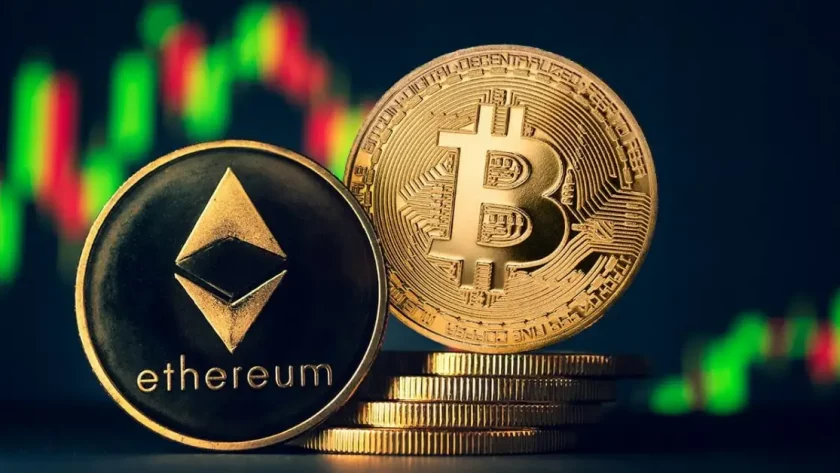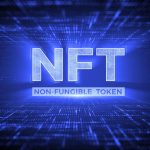In the field of cryptocurrencies, there are several jargons, ranging from cryptocurrencies to cryptocurrencies, not to mention cryptocurrencies. But, exactly, what does the term “token” imply? What is the definition of a crypto-token?
To put it another way, tokens are digital currency. They are not an essential and autonomous part of the existing blockchain, but rather use it as a base, unlike most modern cryptocurrencies. They can be used in a variety of ways, such as to gain access to products or services (using utility tokens), to buy or sell digital art (using non-convertible tokens), or to speculate on the price of coffee (using non-convertible tokens) (with tokens commercial).
What is the definition of a cryptographic token?
So, what exactly is a token? Every cryptocurrency is, strictly speaking, a token. However, the phrase is no longer used in this manner. Rather, it refers to any currency that isn’t bitcoin or ethereum. It can also refer to a digital asset built on top of an existing blockchain technology. In this article, we’ll go through the latter term in greater depth.
Let’s look at what tokens are and how they work in more detail. Cryptographic tokens are usually created for a specific purpose. The nature of this purpose is determined by the company or individual who creates the token. This could entail saving money or gaining access to particular services. These tokens are decentralized, serve as a means of trade, and, like other crypto-assets, use cryptographic signatures for security and registration. There are, nevertheless, significant distinctions.
What’s the difference between cryptographic tokens and cryptocurrencies?
Tokens and cryptocurrencies share many characteristics (for example, they both work in a decentralized manner), yet their structures are vastly different. Cryptocurrencies are an essential component of the blockchain (for example, the Ethereum cryptocurrency is an integral part of the Ethereum blockchain). Tokens, on the other hand, are not a part of any blockchain, but their behavior is governed by smart contracts. These are the software protocols that govern transaction processing.
What’s the difference between crypto tokens and crypto coins?
Tokens and coins like bitcoin and litecoin have a lot in common: both represent value and may be used in transactions. But what’s the difference between coins and crypto tokens? Coins, as cryptocurrency units, are also a part of a blockchain, whereas tokens merely use blockchains as a foundation. Coins are digital versions of cryptocurrencies. Tokens, on the other hand, have a far broader definition because they can represent any form of value.
What’s the difference between crypto tokens and altcoins?
To understand the distinction between crypto tokens and altcoins, we must first comprehend what an altcoin is. The name “altcoins” comes from “alternative coins” and refers to all cryptocurrencies other than bitcoin; there were almost 14,000 distinct altcoins as of November 2021. The distinction between crypto tokens and altcoins is the same as the distinction between tokens and coins in general: each coin and altcoin has its own blockchain, whereas tokens do not. Instead, they base their system on an existing blockchain.
What is the purpose of tokens?
We now have a basic understanding of what a token is. But what exactly are crypto tokens and how do they work? To grasp the concept of tokens, we must first grasp the concept of blockchain. Blockchain is a distributed ledger that connects or merges transaction blocks and logs data. The smart contract specifies the rules that apply to a given token. It’s similar to a software that’s been stored in the suitable blockchain. This blockchain also keeps track of the token’s transactions.
We’ll use the following example to illustrate our point: Assume you own a company that wishes to acquire funds through an Initial Coin Offering (ICO) (ICO). In exchange for their investment, every investor in your company receives tokens, particularly utility tokens. These tokens are stored in the investor’s cryptocurrency wallet and are controlled by a smart contract. Investors can then exchange these tokens for the right company’s products or services – in this case, it’s also feasible to exchange them for shares of the cryptocurrency in question.
What are the different kinds of tokens?
What is the definition of a utility token?
The most frequent type of token is a utility token. Their primary purpose is to allow owners access to the product or service. Utility tokens are frequently utilized in initial coin offers (ICOs), as start-ups seeking funding may give utility tokens to their investors. The corporation can choose how these utility tokens are utilized, such as to pay for items or services.
What is the meaning of a security token?
Security tokens are related to the ownership of pre-existing assets, unlike utility tokens, which are commonly used as coupons to purchase things or services. Each security token is a fraction of a traded item like a car, painting, merchandise, or real estate. Security tokens enable the owners to track transactions linked to these assets by storing them on a blockchain.
What is the definition of a goods token?
Commodity tokens, like security tokens, are crypto tokens that are backed by an existing asset. Commodity tokens are only used for assets in the commodity category, such as coffee, oil, or crude oil, whereas security tokens can be tied to nearly anything of value. Commodity tokens allow for the processing and storage of transactions linked to these commodities on the blockchain.
What is the definition of a non-convertible token?
Digital assets are non-convertible tokens. They make it possible to own and register such assets on the blockchain. The term “Non-Fungible” refers to the fact that the tokens are not interchangeable. If you have one of these tokens, it means you own a specific, one-of-a-kind, non-transferable item, such as a work of art.
What is the significance of cryptographic tokens?
We’ve now gone over what a token is and how they work. Why are they so significant, you might wonder. Tokens can be used to digitally represent nearly any asset in the world, and they can be used to record all transactions involving that item on the blockchain. They create a new and important mechanism to register property rights and assure transparency in the process. And we’re only scratching the surface of what these possibilities entail.




